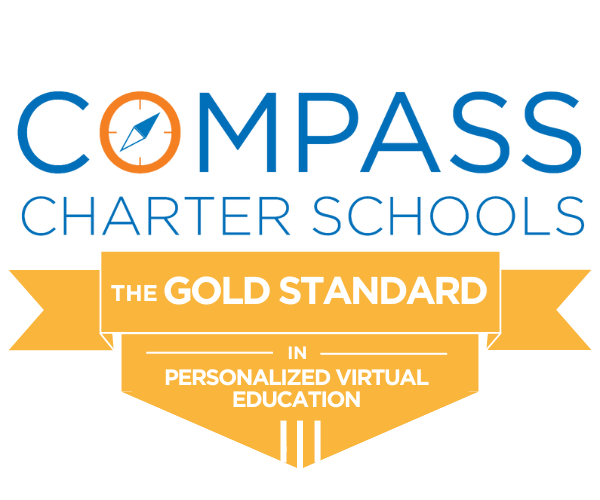
In celebration of College Signing Day yesterday and virtual graduation ceremonies right around the corner, this blog is for scholars contemplating their next steps after high school. If you are a high school senior or even younger, this is a critical time to analyze your skills and life goals and determine what path is the best for you. There are many critical factors in determining if a technical career or college/university degree is your best next step. If you are filled with some doubt and confusion during this challenging time, do not worry, you are not alone. But not to worry, there have been many scholars who have taken various roads to find their ideal career or multiple careers. Moreover, any education can help propel you into a brighter future!
4 Signs You May Be Career/Technical Bound:
“College was once seen as steak, while career and technical education was seen as a hamburger. Today, college is still steak, but CTE has become lobster. In the ideal K-12 school setting, all students would be engaged in high-quality surf-n-turf.” Michael Armbruster
You are taking CTE Courses
Many scholars know their skill set early on and have a passion for a technical or mechanical field. Career and Technical Education (CTE) courses can help you develop those skills and training for jobs in engineering, health sciences, manufacture, and repair.
CTE courses can be valuable to college or career-bound scholars. It gives you a chance to think about the career from a theoretical standpoint while also getting hands-on experience with that field. Students who take CTE courses have a higher graduation rate, about 93 percent, 13 percent higher than the national average.
CTE is broken down into 16 areas of study:
- Agriculture, food, and natural resources
- Architecture and construction
- Arts, audiovisual technology, and communications
- Business management and administration
- Education and training
- Finance
- Government and public administration
- Health science
- Hospitality and tourism
- Human services
- Information technology
- Law, public safety, corrections, and security
- Manufacturing
- Marketing
- Science, technology, engineering, and mathematics
- Transportation, distribution, and logistics
CTE-focused fields can pay excellent salaries right out of high school, or within a year or two of the training. Jobs in communications, transportation, or utilities can have a median annual salary of $60,000, according to a report by Georgetown University.
Whether you decide to enter a technical school or pursue a college degree, CTE courses can provide an excellent foundation and further understanding of career options.
You are Looking into Technical Programs
After high school, specialized programs can be found at colleges or specific technical schools. These courses offer hands-on experiences related to a specific career. These are excellent courses to prepare for a career as an electrician, mechanic, dental hygienist, machinist, pharmacy tech, etc. The technical route is more focused on developing specific skills, whereas college requires general education credits and electives. Upon completion of a trade school program, you will receive a certification in the field or an associate degree. The highly professional programs will often lead to scholar certification in that field.
You are Pushing for a Gap Year
If you feel that you need to wait a year for college, share this with your parents. Scholars may choose to take a year off to work or volunteer and get a better grasp on themselves before starting college or a trade.
“A gap year is not a quick fix — it truly has its benefits for students and schools,” said Robert Franek, editor in chief of The Princeton Review and author of “The Best 385 Colleges.” The break between high school and college typically includes international travel, research, or volunteering before continuing studies. It could also be a way to work for a year to save money to pay for college. “I’m a huge advocate of gap years, but gap year programs are going to be affected by Covid-19,” said Franek. “All of the face-to-face exchanges could be off the table — that’s really the value of a gap year.” Read more about taking a gap year here.
You Struggle With Time Management
If you struggle with time management, turning an assignment in on time, you may not be quite ready for college. Just over 58% of first-year scholars in the US returned to the same college for a second year. Many scholars complete applications, suggesting that they are ready for college, but clearly, they are not. This makes a crucial case for not confusing college admissions with college readiness. If your heart is not in the process, maybe you need to step back and reevaluate.
4 Signs You May Be College/University Bound
A number of college campuses are closed, making it even more difficult for scholars to make an informed decision or visit in person. This can produce many mixed emotions for the scholar, such as fear, disappointment, or anxiety; but with the right strategy, scholars can make this important decision. After extensive research and networking, here are some categories Forbes Magazine recommends to rate universities:
- Affordability (financial aid, additional fees, student debt averages, repayment rates)
- Outcomes (job placement, internships, graduate school acceptance, graduation rates)
- Support (academic accommodations, tutoring, faculty advising, mental health counseling)
- Engagement (research, school spirit, student activism, clubs and activities, academic societies)
- Community Life (location, events, programming, safety, food, belonging )
- Equity (diversity, inclusion, campus policies, level of discourse)
- Gut (a general rating of what your heart is telling you)
You Can Handle the Academic Pressure in High School
College is much a bigger version of high school. As a virtual or at-home student, it is essential to evaluate all options. Do you want to attend a college or university? Well, then you have to determine if you are prepared socially. Did you attend field trips, participate in clubs, National Honors Society, virtual events, etc. with Compass? Are you engaged and socially ready for this type of experience, with thousands of scholars? There are also many online options available, or community college can be an excellent start for scholars who are not quite sure if they are truly prepared socially or academically.
You Have Applied and Been Accepted Into Colleges or Universities
You have independently researched and completed college applications and have already been accepted into one or more! You are excited and anxious about the college process, but prepared. Maybe, you have even visited campuses and are excited about this new chapter in your life! Most importantly, you have discussed with your parents, and you know how your college and expenditures will be financed.
You Meet Deadlines
Do you currently meet all deadlines on time? The college application process is intense and demanding. If you were anxious and excited about researching colleges and universities and started early on the applications, you are probably ready.
You are Independent
Do you already have structure and order in your life? Do you get out of bed in the morning, ready to take on the day? Are you passionate about academics and spending four more years learning and studying? The most successful college scholars are mature, both academically and independently.
The teenage emotional life is filled with highs and lows. How do you react to stressful situations? Can you healthily handle your problems, or do you still need your parents’ support? Can you take care of your basic life needs, from sleeping, exercise, study time, to social life? Can you create a highly structured environment for yourself at a place where the distractions are limitless? Do you seek tutoring or counseling services and identify when you have reached your limit? If yes, then very likely, you are ready to be college-bound!
“For the most important decisions in your life, trust your intuition, and then work with everything you have, to prove it right.” Tim Cook, American business executive, industrial engineer, and chief executive officer of Apple Inc.
“Ultimately the decision you make will be the right one for you at this moment in time. We are living in uncertain times, and if approached with perspective, the novel coronavirus is a lesson to us all that life is unpredictable and not always linear. Neither is education.” Brennan Barnard, Forbes Magazine
Compass scholars, please contact your school counselors for questions and concerns on whether you are college or career-bound.
Follow us on Twitter, Facebook, and Instagram!
